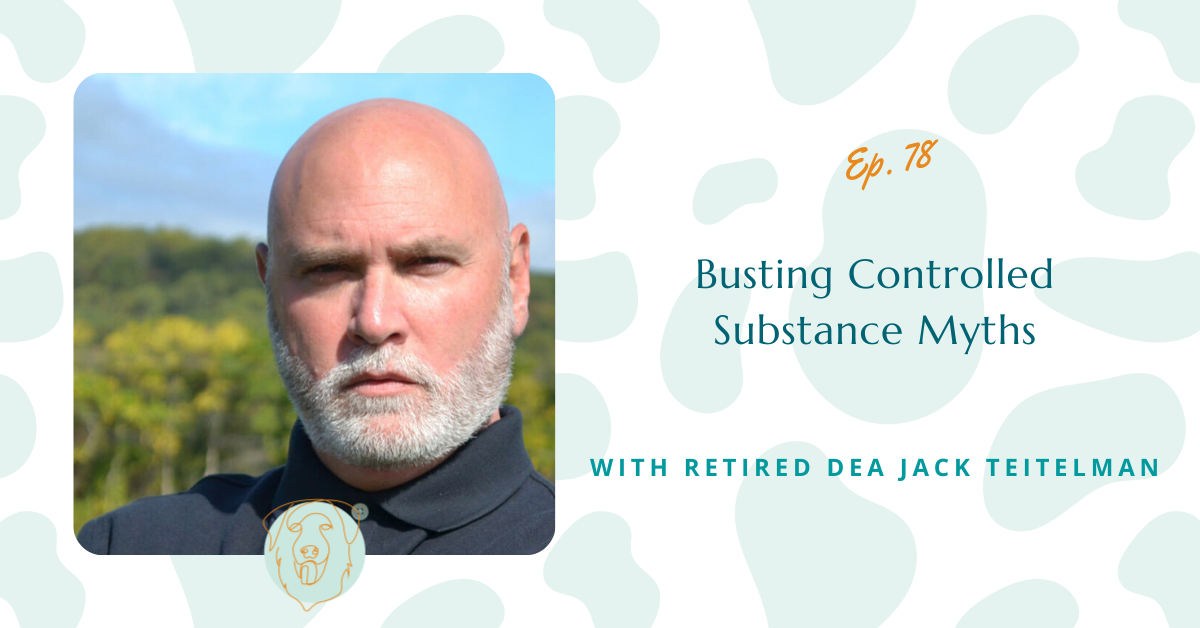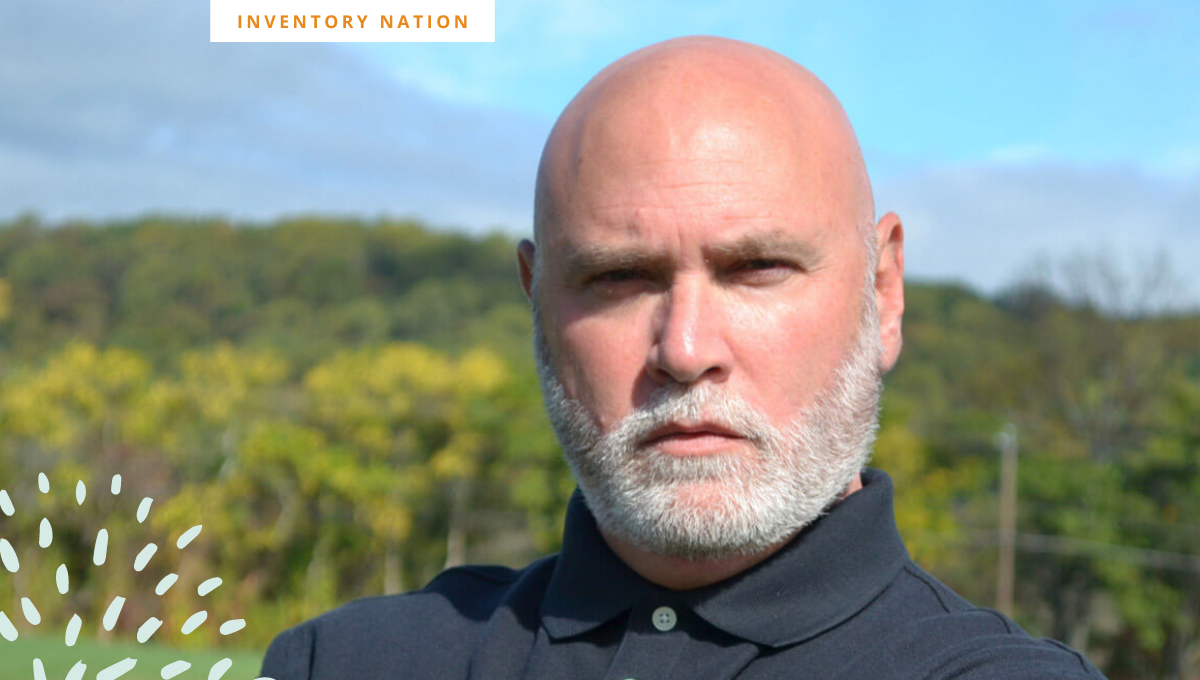TUNE IN: APPLE PODCASTS | SPOTIFY | GOOGLE PODCASTS | AMAZON MUSIC
Jack Teitelman, a 26-year veteran of the Drug Enforcement Agency (DEA), has seen first-hand the fall-out for veterinary registrants who fail to put adequate systems in place and it’s not pretty. Your program doesn’t have to be perfect, but it must demonstrate seriousness of intent and consistency.

SUMMARY
We all know controlled substances are to be handled with care, but Host Nicole Clausen’s guest on this episode of Inventory Nation drives home just how critical it is to mitigate risk – before a breach of compliance occurs! Jack Teitelman, a 26-year veteran of the Drug Enforcement Agency (DEA), has seen first-hand the fall-out for veterinary registrants who fail to put adequate systems in place and it’s not pretty. Your program doesn’t have to be perfect, but it must demonstrate seriousness of intent and consistency. After all, veterinarians sign a contract with the government when they are granted the right to administer drugs. Fall down in that commitment and … well, it’s a serious mess that could even shut down your practice!Â
Fortunately, as CEO at the Titan Group, Jack has developed a special benchmarking expertise when it comes to keeping veterinary practices compliant. He’s sharing with us the essentials everyone wants to have in place if – or when – a DEA inspector shows up at the door. Among other things, he walks us through some of the most common myths about managing controlled substances and clearly spells out which protocols are non-negotiable – like keeping reliable bi-annual logs and putting in place a legitimate three-prong security system (alarm, safe and surveillance camera). The good news? An acceptable controlled substance management system doesn’t have to be fancy. It just needs to be well-considered, steady and serious! And this conversation with one of the best compliance consultants out there is all you need to get started on the path towards peace of mind.
Feeling fully compliant and ready to face the DEA? If not, you might want to take a short risk assessment quiz to determine whether a discovery call is in order! You can find the link here.
Would you like to learn more about Inventory 911 Toolkit, our step-by-step blueprint to help inventory managers optimize knowledge, strategy and confidence? Click here!
You can also join our virtual neighborhood for inventory managers and other veterinary professionals for free by visiting this link.
EPISODE HIGHLIGHTS
- How Jack migrated from 26 years as a Drug Enforcement Administration (DEA) agent into carving out a niche consulting on compliance for the underserved vet community.
- Familiarity with the CVS pharmacopeia doesn’t prepare a veterinary compliance specialist for the demands of that specialty.
- If you’re not doing cycle counts – or any counts at all – you’ll fail your DEA or state inspection “from the get-go.†Get a system in place now – or it’ll come back to haunt you.
- Remember: When you sign your DEA registration, that’s a contract with the government that acknowledges you understand every element of compliance. No excuses.
- MythBuster #1: You can make individual Kitty Magic and TDK mixtures without logging them, but giant, multi-use bags of compounds require a log book and tracking. Use discretion.
- MythBuster #2: You do not want to run a vet practice with multiple DEA licenses. It’s a logistical nightmare, requires as many bi-annuals/record sets and carries liability.
- MythBuster #3: Your mobile vet vehicle’s glovebox is adequate securely storing drugs in transit, right? Not really! Establish an appropriately secure system (such as a safe) for temporary storage out in the field.
- MythBuster #4: Logbooks do not have to be officially bound and an expensive dispensary machine is not mandatory. You just have to be deliberate, consistent and comprehensive.
- MythBuster #5: Safes do NOT have to have a double-lock.
- Fun Facts: Jack gives us an inside look at what actually happens to all those controlled substances that the DEA seizes. The controls on agents are every bit as tight (or tighter) than they are for registrants.
- MythBuster #6: DEA 41 forms aren’t for managing all forms of waste:
- Artificial Intelligence and online systems are rendering a lot more tracking data which put veterinarians under the microscope as never before – revealing patterns and gaps.
- Jack’s Top Tip for Regulatory Compliance
- Want to be scared straight? Jack recently helped a vet client settle a DEA case that was based on 300 missing pills. The fine? $5 million. They negotiated that down to $150,000, but the big takeaway is: More than the amount of missing inventory, sloppy record-keeping will trigger a cascade of negative consequences. It becomes a pile-on.
- After years of epidemic opioid abuse the DEA is leveraging huge fines to punish distributors – which makes sense, but disproportionately punishes independent vet practices and small pharma companies for relatively minor infractions.
- This is Not a Drill: It’s critically important to walk your practice through what an actual DEA audit would look like and ensure that everyone in the practice knows the ground rules for how to respond and manage through the process.
KEY QUOTES FROM THIS EPISODE
“DEA compliance in the veterinary industry is completely different than doing it on the human side.†(Jack)
“The work you’re doing is so important to dispelling bad habits and (providing) the actual compliance information.†(Nicole)
“If you’re a vet, you should have a DEA registration because The Vet Mobility Act was written specifically for veterinarians – not for vet technicians, not for nurses, not for anesthesiologists.†(Jack)
“One set of log books and one set of drugs is kind of a logistical mess sometimes, so I cannot even imagine extrapolating that to every doctor having their own set of drugs, their own set of logs and invoices.†(Nicole)
“You’re starting out. You’re new. You don’t have a lot of money but need to keep logbooks. Well, there’s nothing saying you can’t use a three-ring binder and make your own up. There’s a million examples of logbooks on the internet that you can download and use!†(Jack)
“When it comes to your logging, it tells a story and that story has to follow everything before it and everything after it.†(Jack)
“If you make mistakes or have any issue that might look like something that’s turning into a pattern, write on the back of your log: Diary, diary! Keep notes.†(Jack)
“You’re responsible for those four walls of the facility and everything that happens within. You have to decide as the DEA registrant what it is that – at a minimum – is going to secure those controlled substances and that you can argue that fact.†(Jack)
“One of the things not really understood by the DEA is the veterinary environment.†(Jack)
“If you lose your DEA registration today, no one has a short-term plan in place other than hiring another doctor … which is ungodly expensive and not feasible. That can’t be your business plan. That can’t be your insurance policy.†(Jack)
“Can you pass a DEA inspection? What does that feel like? It’s something you want to go through prior to the DEA coming in because part of that exercise is how to respond to their questions.†(Jack)
“When the DEA shows up, everybody should at that point zip. You don’t have to talk to them unless you’re the registrant … to the point where we have scripts now that we leave at the front desk for some of our larger places that have been hit a lot of times.†(Jack)
MEET JACK TEITELMAN
ABOUT VCL
Veterinary Care Logistics serves veterinarians and their teams who are frustrated that their current inventory system is not functioning correctly and are facing out of control inventory costs and improperly stocked hospitals. VCL helps veterinarians through inventory analysis, comprehensive step-by-step action plans, and thorough team member training. My clients experience great success and rave about my work because I roll up my sleeves and get dirty working with your hospital to improve your inventory as if it was my own hospital.
LINKS + RESOURCES MENTIONED IN THE EPISODE
- Feeling fully compliant and ready to face the DEA? If not, you might want to take a short risk assessment quiz to determine whether a discovery call is in order! You can find the link here.
- VISN: https://www.veterinaryisn.com/
- Inventory Ally – Inventory Management Software: https://inventoryally.com/
- Free Resources: www.vetlogic.co/educationÂ
